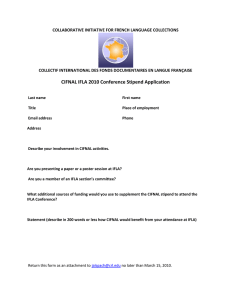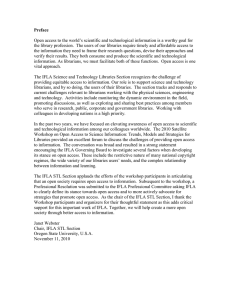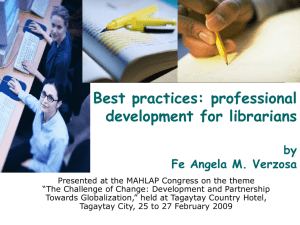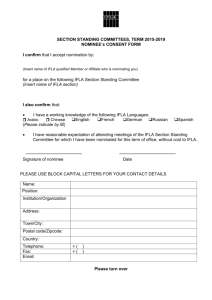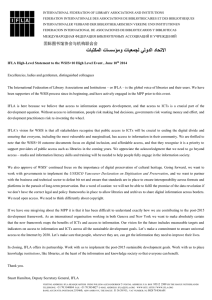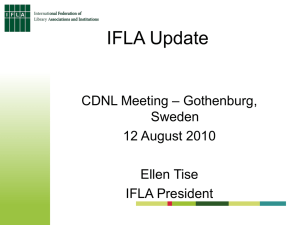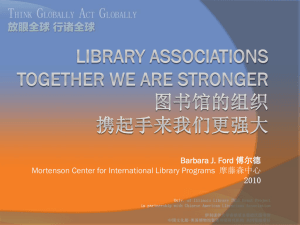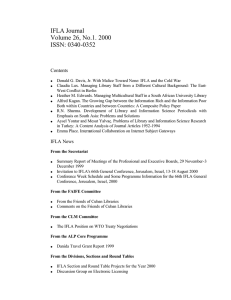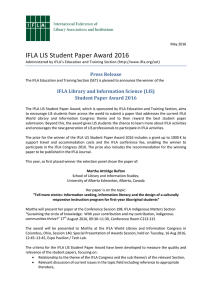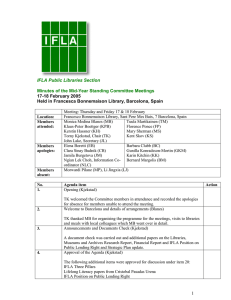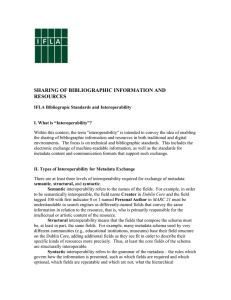PPT - IFLA
advertisement
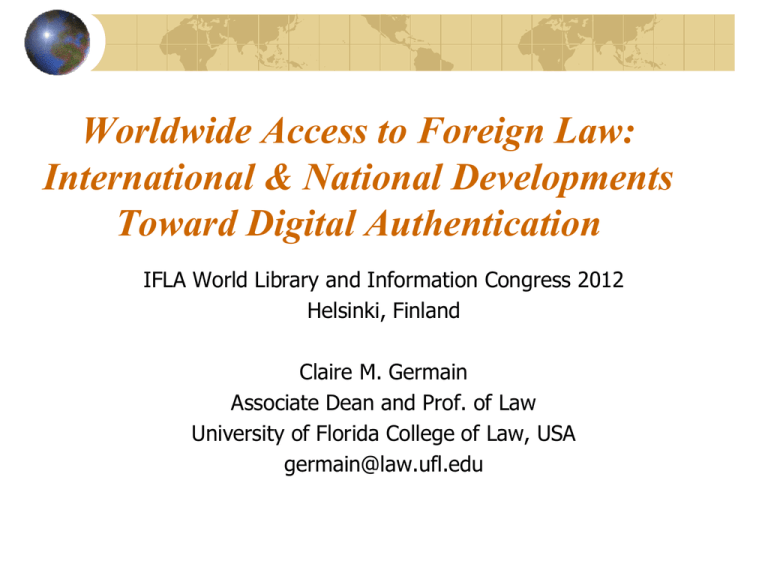
Worldwide Access to Foreign Law: International & National Developments Toward Digital Authentication IFLA World Library and Information Congress 2012 Helsinki, Finland Claire M. Germain Associate Dean and Prof. of Law University of Florida College of Law, USA germain@law.ufl.edu Access to foreign law and government information in a digital environment Governments have stopped publishing laws and decisions in print, and moved to publishing only online How does one make sure that the digital source is authentic and accurate? What’s role of librarians? Long term perspective. What I will talk about: Official vs. authentic in digital world European Commission/Hague Conference Guiding Principles 2012 UELMA and Post Actions in USA Future? IFLA Standard? Article posted on IFLA website Official vs. Authentic in Digital World Online official legal resource = same status as a print official legal resource. USA: court opinions, statutes, codes, or regulations = source “that has been governmentally mandated or approved by statute or rule.” definition is firmly rooted in the print world. Courts and public officials turn to official legal resources for authoritative and reliable statements of the law and require citation to such sources in the documents that come before them. an online official legal resource offers no such automatic assurance. Online Authentic Legal Source Authenticity = quality and credibility Text provided by competent authority and has not undergone any alteration in the chain of custody. government entity has verified the content to be complete and unaltered from the version approved or published by the content originator. Certificate or mark, encryption, digital signature or PKI infrastructure, secure servers and certificates EC/Hague Guiding Principles 2012 […]States should make available without cost to users legislation and relevant case law online. Such information should be authoritative, up-to-date, and also include access to law previously in force. UELMA =Uniform Electronic Legal Material Act 2011 requires a state that publishes official versions of its legal information in electronic format to do three things: Authenticate the information Preserve the information Ensure public accessibility on a permanent basis. Uniform law to be implemented by 50 States (USA) Authenticate by providing a method to determine that the legal material is unaltered from the version published by the state officer or employee that publishes the material; What legal materials are covered by Model Act? State constitution Session laws Codified laws or statutes State agency rules with the effect of law. Does not automatically include judicial or executive materials. States may choose to include court rules and decisions, state administrative agency decisions, executive official documents, etc. Colorado has passed it into law April 2012 California ready to pass Introduced in Connecticut, Minnesota, Rhode Island and Tennessee. Advocacy by Law Librarians AALL (American Association of Law Libraries) lobbied for it successfully. See story in my article. Several stages: Identify problem Gather evidence Seek stakeholders Implement Prospects for Future. Why should librarians be involved? Librarians are relied upon to provide access to accurate information, for the long term. Fundamental issue is trust Before, you handed down a book, now how do you trust the digital information? Europe, Brazil, USA, other countries of the world “Cultivating, Destroying and Tweaking Trust in the Digital Age,” International Herald Tribune, Monday, August 13, 2012 IFLA standard? To encourage foreign governments to publish their laws online, in stable and authenticated digital formats. Work with new IFLA Standards Committee? With other international organizations and library associations? Other IFLA groups? Thanks for your attention.
